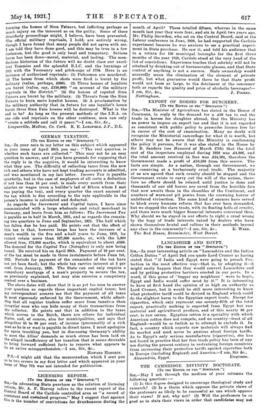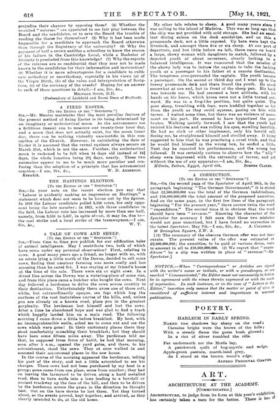THE CAMBRIDGE DIVINITY DOCTORATE. (To THE EDITOR or THE "
SPECTATOR.".] Sot,—May I ask through the medium of your columns the following questions :-
(1) Is this degree designed to encourage theological study and research? (2) Is a thesis which opposes the private views of the professors as likely to be successful as one which opposes their views? If not, why not? (3) Will the professors be to good as to state their views in order that candidates may not
prejudice their chances by opposing them? (4) Whether the so-called " referees " are appointed to see fair play between the Board and the candidates, or to save the Board the trouble of reading the theses for themselves? (5) Why it has been made impossible for a candidate to approach the Board otherwise than through the Registrary of the university? (6) Why the payment of half a crown entitles a schoolboy to know the reason of his failure in the Cambridge Local, while a Bachelor of Divinity is preoluded from this knowledge? (7) Why the reports of the referees are so confidential that they may not be made known to the candidates for their information and instruction? (8) Whether it is more advantageous for a candidate to culti- vate orthodoxy or unorthodoxy, especially in his views (a) of the Virgin Birth, (b) of the value and interpretation of Scrip- ture, (c) of the accuracy of the creeds? Hoping for an answer to each of these questions in detail.—I am, Sir, &c.,
MELVILLE Scow, D.D.
(Prebendary of Lichfield and Rural Dean of Stafford).



































 Previous page
Previous page